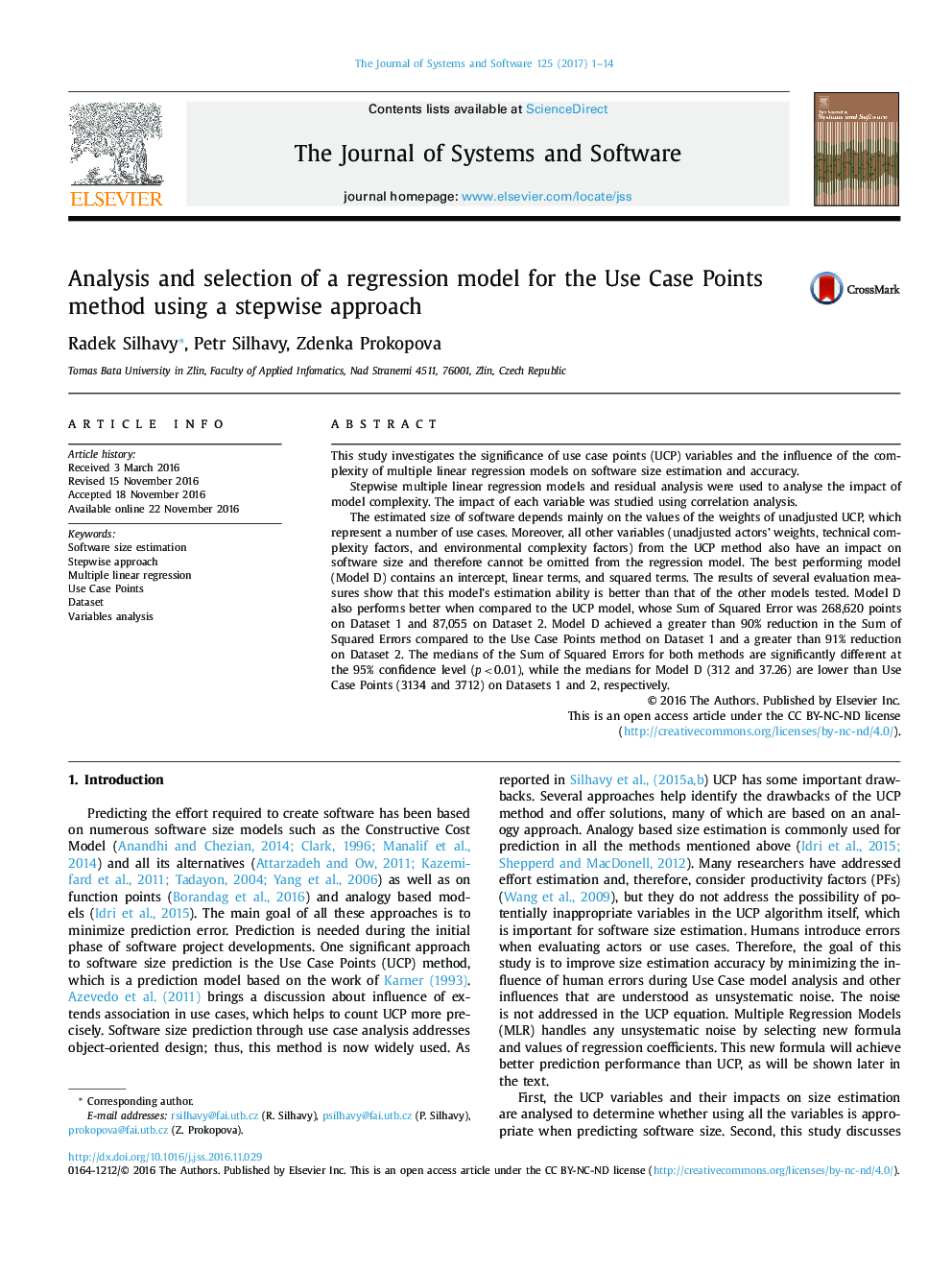| Article ID | Journal | Published Year | Pages | File Type |
|---|---|---|---|---|
| 4956497 | Journal of Systems and Software | 2017 | 14 Pages |
â¢Software size estimation in software development projects depends on the number of use cases;â¢All variables from the Use Case Points method have impact on a size estimation;â¢Multiple Linear Regression models are considered;â¢Stepwise Regression settings have been tested in this study;â¢Multiple Linear Regression model concluded to be better than the Use Case Points method;
This study investigates the significance of use case points (UCP) variables and the influence of the complexity of multiple linear regression models on software size estimation and accuracy.Stepwise multiple linear regression models and residual analysis were used to analyse the impact of model complexity. The impact of each variable was studied using correlation analysis.The estimated size of software depends mainly on the values of the weights of unadjusted UCP, which represent a number of use cases. Moreover, all other variables (unadjusted actors' weights, technical complexity factors, and environmental complexity factors) from the UCP method also have an impact on software size and therefore cannot be omitted from the regression model. The best performing model (Model D) contains an intercept, linear terms, and squared terms. The results of several evaluation measures show that this model's estimation ability is better than that of the other models tested. Model D also performs better when compared to the UCP model, whose Sum of Squared Error was 268,620 points on Dataset 1 and 87,055 on Dataset 2. Model D achieved a greater than 90% reduction in the Sum of Squared Errors compared to the Use Case Points method on Dataset 1 and a greater than 91% reduction on Dataset 2. The medians of the Sum of Squared Errors for both methods are significantly different at the 95% confidence level (pâ<â0.01), while the medians for Model D (312 and 37.26) are lower than Use Case Points (3134 and 3712) on Datasets 1 and 2, respectively.
